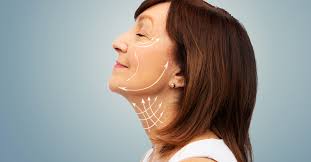Plastic surgery allows you to change your appearance or correct body defects. After surgery, you must care for yourself to avoid negative side effects and maintain optimum results. Self-care involves taking medications as instructed by your surgeon, drinking enough water, eating healthy, and several other tasks. Here are a few ways to care for yourself after plastic surgery:
Drink Enough Water
Drinking adequate water has several benefits after plastic surgery. Depending on the procedure, you may have lost a lot of fluids during your plastic surgery. Water helps replenish these lost fluids. It improves blood circulation, supplying the surgery area with the necessary nutrients for healing. Water also helps prevent constipation, a side effect after surgery that can occur due to pain medications and reduced physical activity. Other benefits of water after surgery include flushing out toxins that will slow healing and improve skin appearance.
Eat Healthy Foods
After plastic surgery, your body needs the right nutrients to aid healing and recovery. Maintain a balanced diet that includes vitamins, lean proteins, and healthy carbohydrates. Fruits and leafy vegetables are excellent sources of vitamins, and these help repair tissues damaged during surgery. These foods also contain antioxidants to help fight free radicals that may slow healing. Chicken, fish, turkey, and eggs are lean proteins, and these are the tissue building blocks. Healthy carbohydrates give your body energy, especially because you may feel weak and tired after surgery. Avoid processed foods as much as possible because they contain high sugar, salt, and unhealthy fat content, which may lead to inflammation.
Avoid Smoking and Alcohol
While it may be tempting to smoke or use alcohol after plastic surgery, these substances have chemicals that slow recovery. Nicotine in cigarettes constricts blood vessels, hindering the flow of oxygen to various body areas. Lack of enough oxygen negatively affects the regeneration of new tissues. Alcohol is a blood thinner and can cause excessive bleeding. Other potential negative side effects of alcohol are dehydration, fatigue, worsened pain and discomfort, and harmful reactions after combining with medications.
Avoid Strenuous Activities
People used to intense exercising will feel the need to continue after plastic surgery. Plastic surgeons often recommend waiting several weeks or until full recovery before resuming your exercise routine. When your scars and wounds are still fresh, increased pressure from strenuous activities can make them worse. Intense exercise can also lead to swelling due to increased blood pressure, bruising, fluid buildup, and infection from sweating. An easy walk around your neighborhood is a simple and safe alternative to intense exercise. It can stimulate blood circulation while helping you avoid the negative consequences of strenuous activities.
Stay Away From Direct Sunlight
Direct sunlight can have negative side effects, especially for facial plastic surgeries. You may experience natural swelling after a procedure, but the sun makes it worse by widening blood vessels. More prominent scarring is another potential side effect of sun exposure because of hyperpigmentation. The result is a darker scar that will take longer to disappear. The sun’s heat may also add sunburns to an already sensitive area. Wear a wide-brimmed hat if you are planning to stay in the sun for long periods or choose shaded spots.
Sleep More
You may not be working immediately after your plastic surgery procedure, so take advantage of that time to sleep more. Enough sleep helps reduce stress levels, allowing the body to heal and recover optimally. Your body also produces cytokines when you sleep, proteins that boost the immune system. A stronger immune system protects the body against infections and promotes quicker healing.
Follow Your Plastic Surgeon’s Instructions
Plastic surgeons prepare instructions depending on the procedure. You may need to avoid certain foods, bathing, pets, operating machinery, etc. The surgeon may also recommend painkillers and antibiotics. Follow the surgeon’s instructions to avoid the risk of complications. Take the prescribed pain medications to enhance comfort and the antibiotics to fight infections.
Care for Yourself After Plastic Surgery
After investing in your desired plastic surgery, caring for the results can promote quicker healing and avoid complications. Take this time to rest as much as you can. Visit your surgeon for follow-up appointments as recommended. These allow the professional to evaluate your progress and determine if any changes are necessary.






